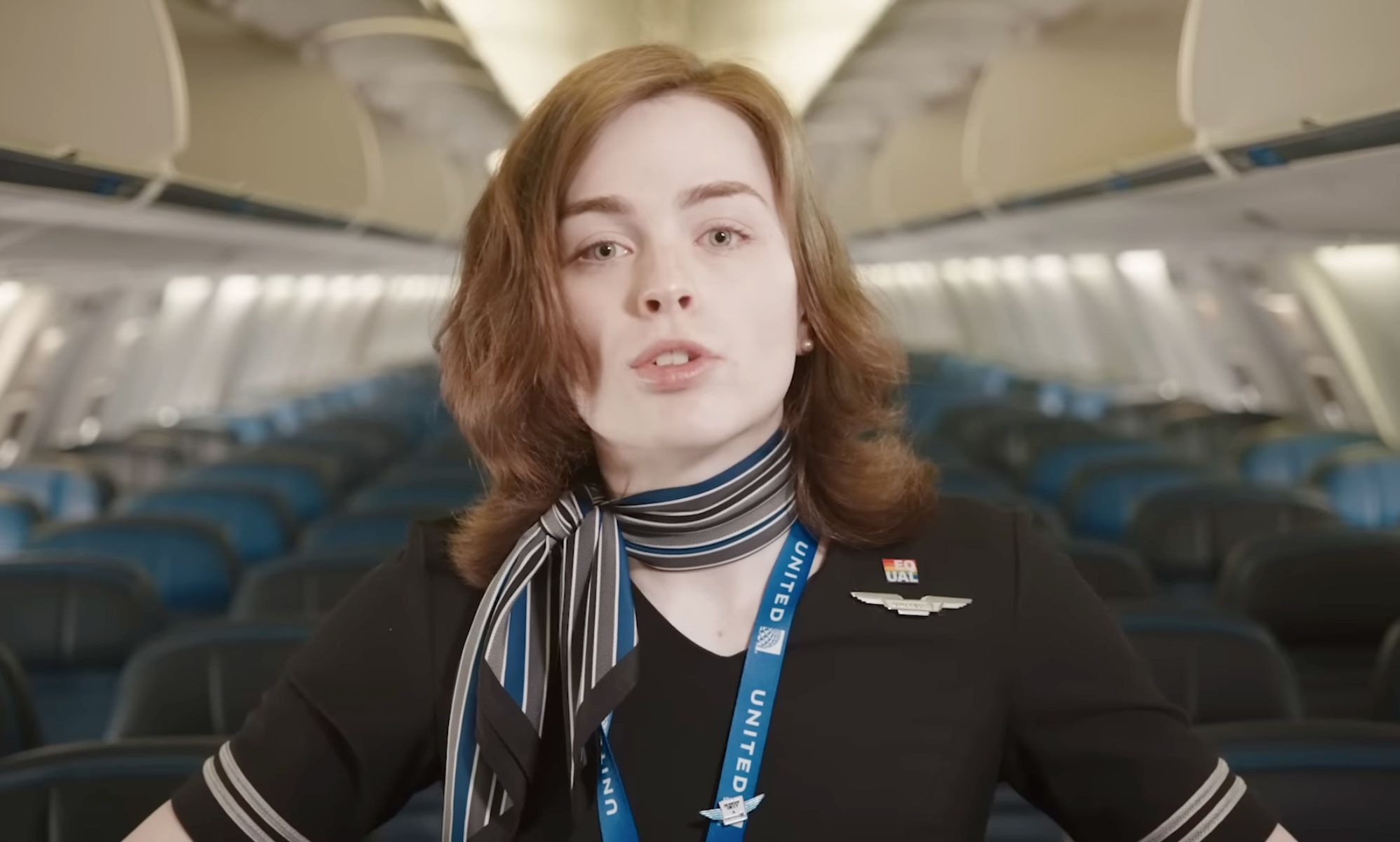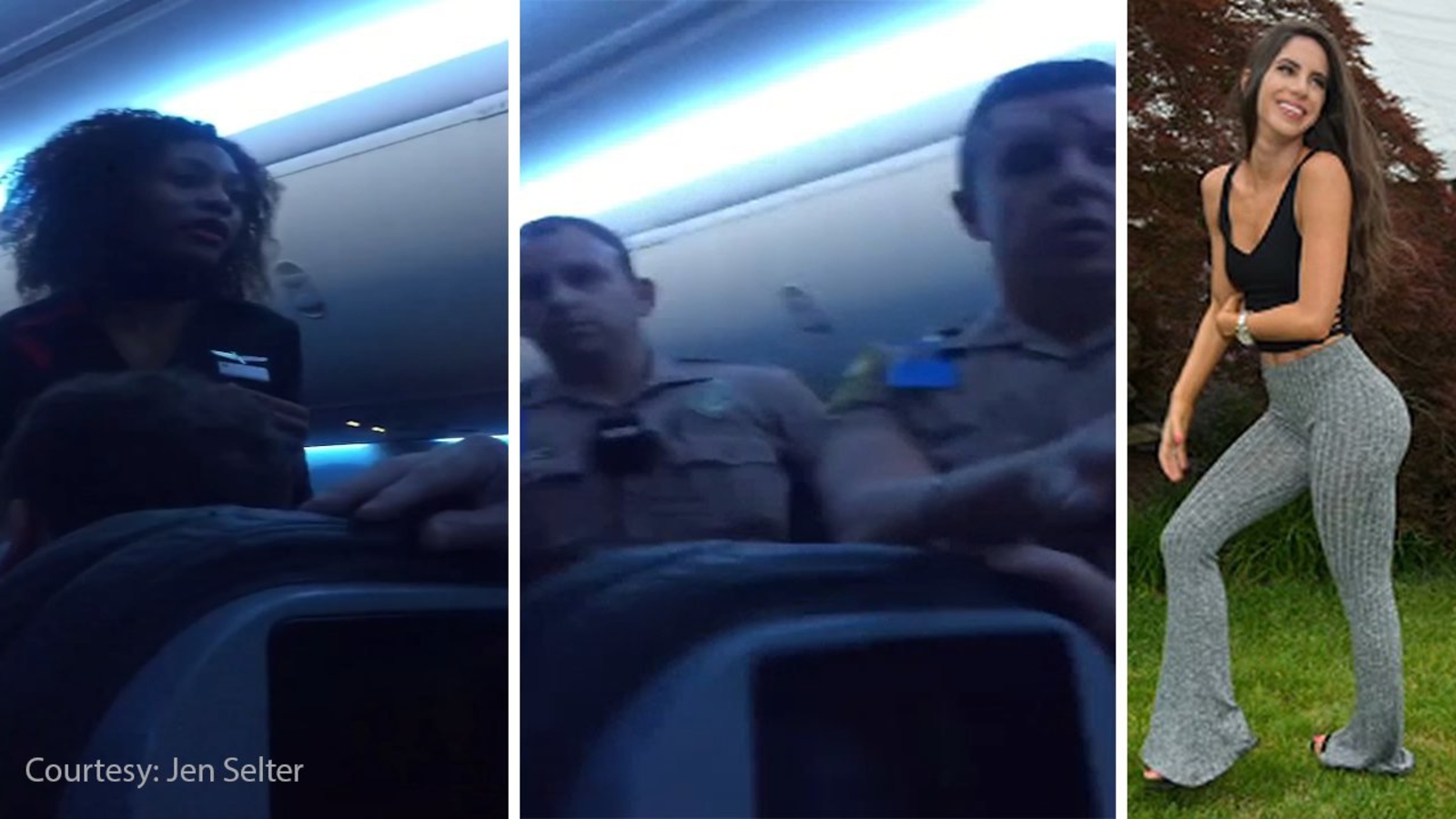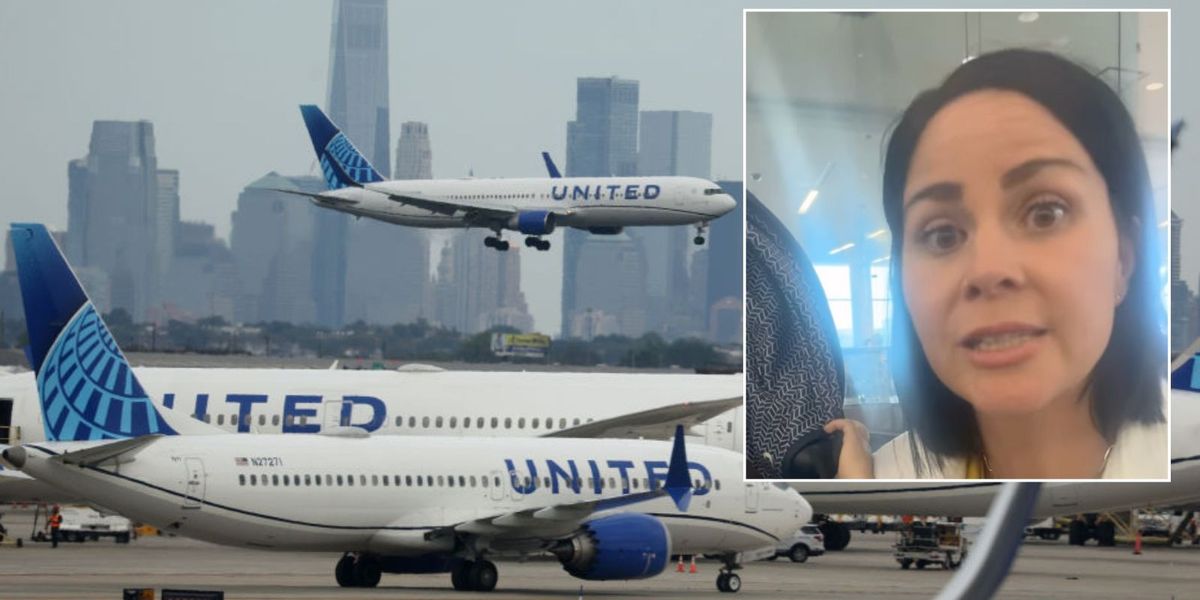Let’s face it, folks. The world is evolving, and so are our perspectives on gender. But when it comes to the aviation industry, misgendering flight attendants has become a topic that demands attention. It’s not just about politeness; it’s about respect, inclusion, and understanding. Whether you’re a frequent flyer or someone who only steps on a plane once in a blue moon, this issue affects everyone involved in air travel. So, buckle up, because we’re diving deep into the world of misgendering flight attendants and why it matters.
In today’s fast-paced world, the aviation industry is more diverse than ever before. Flight attendants come from all walks of life, representing a wide range of genders and identities. However, the way they are addressed during flights can sometimes lead to awkward situations or even unintentional disrespect. Misgendering isn’t just a minor slip-up; it can have a lasting impact on how individuals feel about their workplace and their interactions with passengers.
Now, before we dive into the nitty-gritty details, let’s clear the air. This isn’t about pointing fingers or blaming anyone. Instead, it’s about raising awareness and encouraging a more inclusive environment for everyone involved in air travel. Whether you’re a passenger, a pilot, or a crew member, understanding the importance of addressing people correctly can make a world of difference.
Read also:How To Legally And Ethically Manage Text Message Marketing Campaigns
Understanding the Basics of Misgendering
What Exactly Is Misgendering?
Misgendering happens when someone refers to another person using pronouns or titles that don’t align with their gender identity. For example, calling a non-binary flight attendant "sir" or "ma’am" when they prefer neutral pronouns can be considered misgendering. It’s not always done on purpose, but the impact can still be hurtful.
Here’s a quick rundown of what misgendering looks like:
- Using incorrect pronouns (he/she instead of they/them).
- Referring to someone by a title that doesn’t match their identity (Mr./Ms. instead of Mx.).
- Assuming someone’s gender based on their appearance or job role.
Now, you might be thinking, "Why does this matter?" Well, stick around, because we’re about to break it down for you.
Why Misgendering Flight Attendants Matters
More Than Just Words
Words hold power, and in the case of misgendering, they can carry a lot of weight. For flight attendants, being misgendered on the job can create an uncomfortable or even hostile work environment. Imagine spending your entire shift feeling unseen or invalidated because of how others address you. It’s not just about personal pride; it’s about creating a safe and respectful space for everyone involved.
Let’s take a look at some stats. According to a 2023 survey conducted by the National Center for Transgender Equality, nearly 50% of transgender and non-binary individuals reported being misgendered in public settings. In the aviation industry, where interactions are frequent and often fast-paced, the chances of misgendering increase significantly.
The Impact on Flight Attendants
Emotional and Psychological Effects
Misgendering can have serious emotional and psychological effects on flight attendants. It can lead to feelings of isolation, anxiety, and even depression. Imagine having to deal with these emotions while ensuring the safety and comfort of hundreds of passengers. It’s a lot to handle, and it’s something that no one should have to face at work.
Read also:Woman Wakes Up Alone On Train Station Bench Finds Money And An Emotional Letter In Her Hand
Here’s a list of potential effects:
- Increased stress levels.
- Decreased job satisfaction.
- Higher rates of burnout.
But it’s not all doom and gloom. There are steps we can take to make things better, and we’ll get to those in a bit.
Steps to Prevent Misgendering in Aviation
Training and Education
One of the most effective ways to prevent misgendering is through training and education. Airlines can implement programs that teach employees about gender diversity and the importance of using correct pronouns and titles. This can include workshops, online courses, and even interactive simulations to help staff understand the impact of their words.
Some airlines are already leading the charge. For example, Delta Airlines recently introduced a program called "Respectful Language Training," which focuses on creating a more inclusive environment for all employees. Other airlines should take note and follow suit.
Passenger Responsibilities
How You Can Help
Passengers also play a crucial role in preventing misgendering. It starts with being mindful of how you address flight attendants and other individuals during your travels. If you’re unsure of someone’s pronouns, it’s perfectly okay to ask politely. Most people will appreciate your effort to get it right.
Here are a few tips for passengers:
- Ask for pronouns if you’re unsure.
- Avoid making assumptions based on appearance.
- Apologize if you make a mistake and move on gracefully.
It’s all about fostering a culture of respect and understanding. Small actions can make a big difference.
Legal and Ethical Considerations
What the Law Says
From a legal standpoint, misgendering can be considered a form of discrimination in certain jurisdictions. In countries like the United States, the Equal Employment Opportunity Commission (EEOC) has recognized gender identity as a protected characteristic under Title VII of the Civil Rights Act. This means that employers have a responsibility to ensure their workplaces are free from discrimination, including misgendering.
Ethically speaking, it’s simply the right thing to do. Treating others with respect and dignity should be a top priority in any profession, especially one as customer-focused as aviation.
Industry Responses and Initiatives
What Airlines Are Doing
Several airlines have taken steps to address the issue of misgendering. For example, British Airways has introduced a policy allowing flight attendants to wear uniforms that align with their gender identity. This small but significant change helps create a more inclusive environment for both employees and passengers.
Other initiatives include:
- Offering gender-neutral uniforms.
- Providing pronoun pins for staff to wear.
- Encouraging open communication about gender identity.
These efforts show that the industry is moving in the right direction, but there’s still more work to be done.
Challenges and Obstacles
Overcoming Resistance
Of course, change doesn’t happen overnight. There are still some challenges to overcome when it comes to addressing misgendering in aviation. Resistance from certain individuals or groups can slow progress, but it’s important to keep pushing forward. Education and open dialogue are key to breaking down barriers and creating a more inclusive industry.
Here are some common obstacles:
- Misunderstanding of gender identity concepts.
- Resistance to change from long-standing traditions.
- Lack of awareness or training among staff.
But with persistence and collaboration, these challenges can be overcome.
Success Stories and Best Practices
Learning from the Leaders
There are plenty of success stories to draw inspiration from. Airlines like Southwest and Air Canada have made significant strides in promoting inclusivity and preventing misgendering. By adopting best practices such as offering pronoun options during booking and training staff on LGBTQ+ issues, these companies are setting a positive example for the rest of the industry.
Here’s a quick list of best practices:
- Offer pronoun options during the booking process.
- Provide ongoing training for staff.
- Create policies that support gender diversity.
These practices not only benefit flight attendants but also enhance the overall travel experience for passengers.
The Future of Inclusivity in Aviation
What’s Next?
Looking ahead, the future of inclusivity in aviation looks promising. As more airlines adopt inclusive policies and practices, we can expect to see a more welcoming and respectful environment for everyone involved. Technology will also play a role, with advancements in AI and data analytics helping to streamline processes and improve communication.
But it’s not just about the big players. Small and medium-sized airlines can also make a difference by implementing similar initiatives. The key is to stay informed, remain open to change, and always prioritize respect and understanding.
Conclusion
So, there you have it, folks. Misgendering flight attendants is a real issue that deserves our attention. By understanding the basics, recognizing the impact, and taking steps to prevent it, we can create a more inclusive and respectful aviation industry. Whether you’re a passenger, a crew member, or someone who works behind the scenes, your actions matter.
Here’s a quick recap of what we’ve covered:
- Misgendering is more than just a slip of the tongue; it can have serious emotional and psychological effects.
- Training and education are key to preventing misgendering in aviation.
- Passengers play an important role in fostering a culture of respect and understanding.
- Legal and ethical considerations highlight the importance of addressing this issue.
- Success stories and best practices show us the way forward.
Now, it’s your turn. Leave a comment below and let us know your thoughts on this topic. Share this article with your friends and family to spread awareness. Together, we can make a difference and ensure that everyone feels respected and valued in the world of aviation.
Table of Contents
- Understanding the Basics of Misgendering
- Why Misgendering Flight Attendants Matters
- The Impact on Flight Attendants
- Steps to Prevent Misgendering in Aviation
- Passenger Responsibilities
- Legal and Ethical Considerations
- Industry Responses and Initiatives
- Challenges and Obstacles
- Success Stories and Best Practices
- The Future of Inclusivity in Aviation


